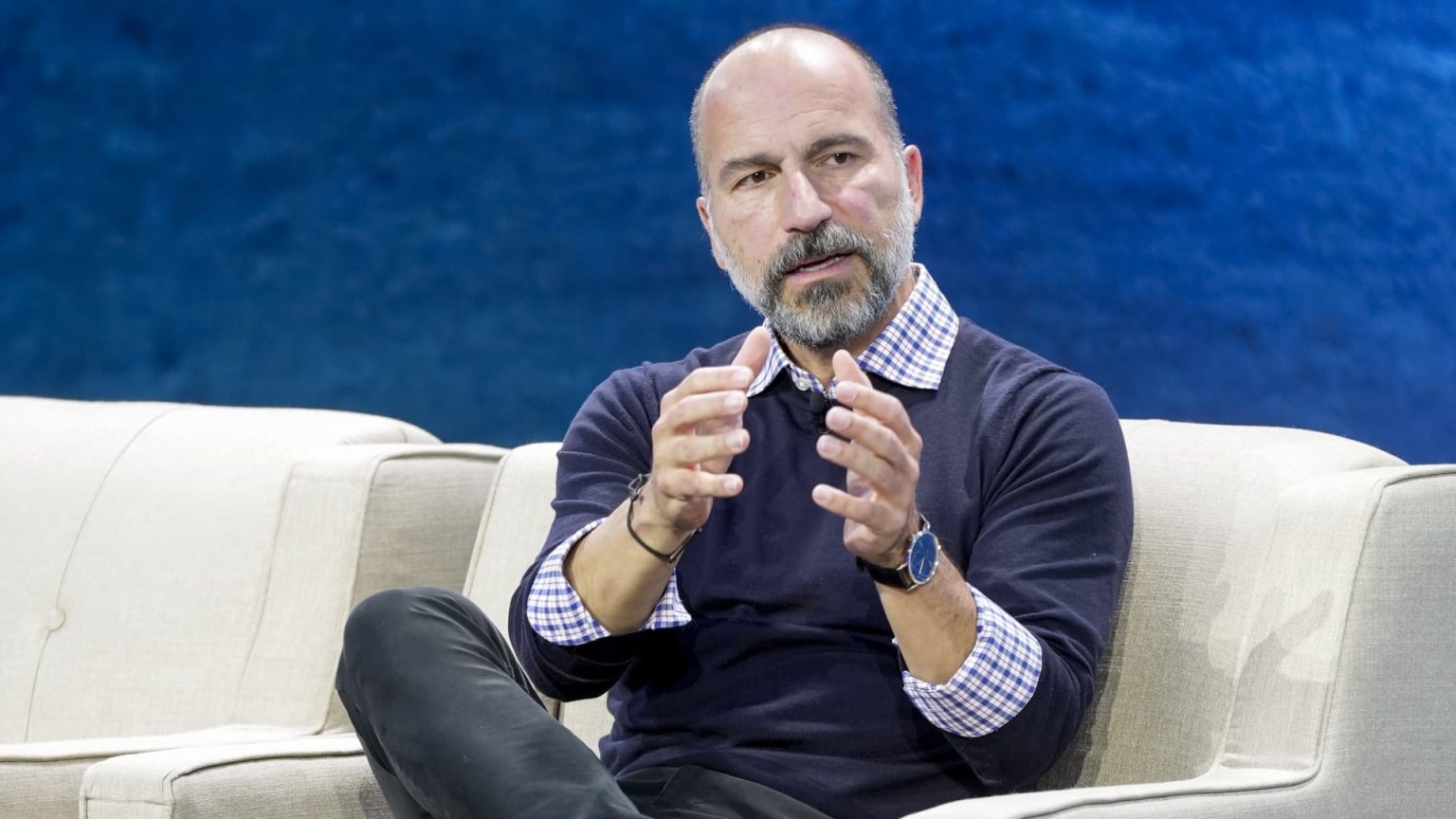Uber reported third-quarter results Tuesday that missed analysts’ expectations on top and bottom lines but showed strength in other areas, like gross bookings, which exceeded the company’s guidance from the second quarter.
Here’s how the company did:
- Earnings per share: 10 cents vs. 12 cents expected by LSEG, formerly known as Refinitiv.
- Revenue: $9.29 billion vs. $9.52 billion expected by LSEG.
Uber’s revenue for the quarter was up 11% from the same quarter last year. The company reported net income of $221 million, or 10 cents per share, compared with a net loss of $1.2 billion, or 61 cents per share, in the same quarter last year. That includes a $96 million headwind from revaluations of Uber’s equity investments.
Shares of Uber were up around 2% in premarket trading Tuesday.
In a prepared statement, CEO Dara Khosrowshahi said Uber’s third quarter was “very strong” and he saw accelerations in the company’s gross bookings, trips and monthly active platform consumers. He added that the platform is seeing the continued benefits of consumers shifting spending from retail to services.
“These results demonstrate that Uber continues to drive profitable growth at scale—and why we believe we’re well positioned for the journey ahead, in good or bad macro environments,” he said.
Uber reported adjusted EBITDA of $1.09 billion, up $576 million year-over-year and above the $1.02 billion expected by analysts polled by StreetAccount. Gross bookings for the quarter came in at $35.3 billion, up 21% year over year and above the company’s guidance last quarter.
For the fourth quarter of 2023, Uber said it expects to report gross bookings between $36.5 billion and $37.5 billion, compared to StreetAccount estimates of $36.5 billion, and adjusted EBITDA of $1.18 billion to $1.24 billion.
Here’s how Uber’s largest business segments performed:
Mobility (gross bookings): $17.90 billion, up 31% year-over-year
Delivery (gross bookings): $16.09 billion, up 18% year-over-year
Uber’s mobility segment reported $5.07 billion in revenue, compared with delivery’s $2.93 billion. Its freight business booked $1.28 billion in sales for the quarter, a 27% decline year over year. The figure is also in line with the $1.28 billion Uber reported last quarter when Khosrowshahi told CNBC freight has remained a challenging spot for the company.
The number of Uber’s monthly active platform consumers reached 142 million in the second quarter, up 15% year over year. There were 2.44 billion trips completed on the platform during the period, up 25% year over year.
Read the full article here





